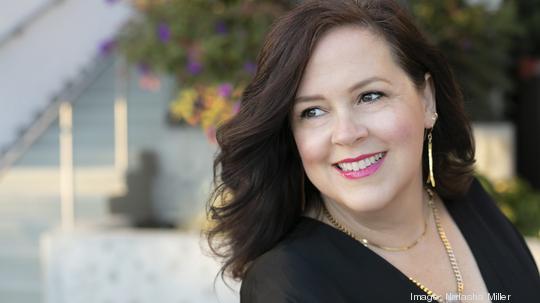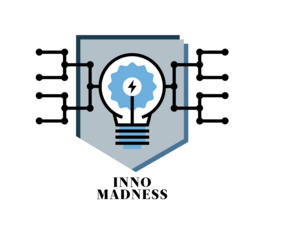
Natasha Miller just wanted to be a performer. She's a classically trained violinist and jazz singer with several of her own albums. After struggling for many years, she started getting more requests for bookings than she could handle. Instead of turning them down, Miller saw an opportunity to manage other artists, an idea that became a multi-million dollar live events production company called Entire Productions, which she started in 2001.
Everything was going great until early 2020 when Miller had to make the difficult decision to shut down her business temporarily. It was another challenge to overcome after a lifetime of struggling. As a teenager, Miller had to flee from an abusive home and ended up in a shelter for homeless teens. She wrote a memoir about her experiences, "Relentless: Homeless Teen to Achieving the Entrepreneur Dream," which launches on March 22. I spoke with Miller earlier in March about surviving childhood trauma, dealing with imposter syndrome and how she learned to be a successful business person. We "met" in the metaverse via ExVo, a virtual conference center that was developed by AllSeated and customized for Miller.
Who did you write this book for?
Who I wrote it for at the beginning, and who I ended up writing it for towards the end is completely different. It took about four years from the time I decided to write it to today, and it was definitely a cathartic situation for myself. I knew that it would be somewhat helpful to people, but when I started writing it, I hadn't yet told people about my past. So I didn't understand the experience of the impact that I might have until I started admitting out loud some of these things. So it was about me, and the potential of reaching other people.
One theme that really stood out for me was imposter syndrome. How do you combat imposter syndrome, and is it a feeling that you ever really outgrow?
Before, I would have probably said, I don't have access to this, I'm not good enough, no one's caring for me. But there was this fire in my belly. There would come a point where I'd be like, I don't care, I'm doing it anyway. Recently somebody said the most brilliant thing to me: 'Your goals end up being your limitations.' I just punched through, sometimes. And that's a lot of my life. Waiting for things to pass. Bad feelings, depression. And I don't mean passively waiting them out, but not forcing it.
You also write that sometimes opportunity can feel like a jail sentence, and that "adversity wrecks as many as it saves, and success can be just as disappointing as failure." What do you mean by this?
It is not arriving at the thing. Yes, it'd be great to be a New York Times bestselling author. But the process of getting there is so much more fulfilling than waking up one day and seeing that you're on the list. Also, waking up one day and seeing that you're on the list can be a huge pressure, because it's what happens after that, right?
Entire Productions was scaling and growing, we were making hundreds of thousands of dollars a month. And for me that was startling. And the pressure that I felt was similar to the stress of negative stuff. And nobody sets you up for that. If you can't enjoy the inflection point leading up to that, you're really missing out.
Why did you start your company, Entire Productions, and how did you finance it in the early days?
It was bootstrapped. I didn't have the kind of overhead that some businesses have when they start. I didn't need seed money because I was working full time at an ad agency. And so I was kind of borrowing from my own money to bootstrap my company. But it was just me. All I set out to do was to be a performance artist. That was it. That was all that was on the books for me. But I was being asked to perform for people's weddings and social events and corporate events multiple times in one night that I was already booked. I am not going to say to you sorry, I'm not available for your wedding, good luck, goodbye. No way, no. I would say, you know what, I am not personally available but I'll bring in another group to perform for your event that is just as good as we are, probably better, and manage them. So that's how Entire Productions started.
How did you go about learning how to build a team, and then also learning to delegate and trust them?
It's a messy, clumsy, story. It was not pretty. It's a little prettier right now. I was very hesitant, I did not want the responsibility of paying for somebody's life. And so I held off on that for a long time. When I first started getting employees, I didn't know how to write a good job description, I didn't know how to write the outcomes of what I wanted that person who was doing those things on the job description to achieve. I didn't know what to look for or how to ask them in an interview. I didn't have a scorecard. I didn't have culture and core values built in. I really didn't have an onboarding process. Like, I didn't have anything.
And then I started really learning how to run a business. I'm getting better at it. I have an incredible team right now. They're all self managed. They're all high level, high energy. And the excellence that they provide, not only to me as their boss, but to themselves as the employee and to our clients and vendors is pretty remarkable. And yes, I have to point out myself a little bit for that.
Most people are familiar with websites now, it's not the groundbreaking thing anymore. But the technology landscape has shifted to other things: VR/AR, web3, the metaverse. Can you tell me a little bit about ExVo, this platform space that we're talking in right now and what it's all about?
My friends from Israel created the AllSeated platform, which is a platform that helps event planners plot their events, the floor plan, and then look at it in a 3D way or a bird's eye view so that you can see, you can show a client, this is what your event will look like. Then, of course, they had a little hiccup: nobody was doing in-person events. They pivoted and created ExVo.
Right now we're in this room that was built just for me. It's my own little personal office, I can change all of the branding and I could change the configuration of the screens. Up to 17 of us could have a conversation just like we would at a conference.
I was going to do an NFT launch with my book, but I realized, I have such a huge marketing plan that to put on an NFT on top of it would probably kill me. And also my readers and my people aren't there yet. I do want to do an NFT launch for some of my projects, but it will be six to nine months later. Yes, they're the future but they're the now. So is the metaverse. It's now and if you're not understanding it, accepting it, engaging in it, you're behind. And if you're behind and late to the game, it's like change and grow, or die.
In early 2020, you were gearing up for a big event and it just all came crashing down with the whole world stopping. What was going through your mind, and how did you come out of that?
What was going through my mind was: we're doing this event. We didn't know what Covid was. We were doing this event unless the government shuts us down. Thank God I made the decision to pull the plug when I did, because we had so many sponsors that were investing in materials, in food and beverage, and a lot of money and a lot of food would have been spoiled, right? We literally couldn't leave our houses by the day before our event was supposed to happen. And so I saved my own tail by making that executive decision in time. But it was really hard. It's not any brilliant move. It was gut instinct.
But then you pivoted. You seem to have this knack for finding a little glimmer of opportunity.
You're missing the panic attack in between: I'm going to die, I'm going to be homeless, I have no life, I've lost my 20 years worth of business. I went down that rabbit hole for a very short time. I had to lay off half my staff. That is the most humiliating, gut wrenching thing. It sucks to have to do.
I think it's important for people to know that this successful business person has those moments where they go into the depths of things that are not necessarily true, but your brain says that they are for the moment. I am my best self during a challenge. Now I say that with a smile, but I'm not sure it's something to be proud of. It's probably baked in from having to survive from a young age.
Another major theme in the book is childhood trauma. I appreciated that you explicitly write that not everybody makes it, not everybody gets through it, right? This is not something to celebrate, and it's always better to not have to go through that.
An editor was asking me, 'Are you thankful?' Because a lot of people are like, 'I'm thankful for the hard knocks, if I had to do it all over again, I wouldn't change a thing.' Yeah I would, absolutely. Maybe had I been loved and cared for, maybe I wouldn't have this particular life I'm having but I would have a life that's in my heart and soul that's so much more safe.
You also write about worrying that you are gouging people if you raised your prices, but it's not gouging if it's what your services are worth. What advice would you give to others who think they shouldn't raise their prices because people are not going to pay it?
My response to that would be to get educated on how to price. What is the top of the market? How far can you go? And then where are you in relationship to your services and your excellence to the person that's getting that? Are you above? Then you can push a little harder.
What's your outlook for 2022 and Entire Productions? Are you optimistic?
I'm very optimistic because I have so many irons in the fire, and they're all coming to fruition soon. Entire Productions is doing great, we're getting a lot of RFPs not only for virtual events but in-person events. And I don't think that we're going to see a huge amount of larger-scale in-person events until the third or fourth quarter. It may take a year or two more for the Dreamforces and the big Google events and 6,000 person parties to come back. But we are staffed, and our overhead is rearranged to be able to weather this continuing storm. And then we have to bulk up as things start kicking up into full gear.
I'm also curious who your musical inspirations are?
I have so many and they don't make sense with me being a classical violinist and jazz vocalist. So Bonnie Raitt, Shawn Colvin, Itzhak Perlman, Frederica von Stade, she's an opera singer. The Violent Femmes, The Police. I love them. So, you know, I'm not really mentioning many classical or jazz artists. And then right now Allen Stone, I really like his music. Dawes, I like that band. So I mean, lots of different genres. And I get to hear so many different genres because we produce so many music concerts that I hear Dixieland and gypsy jazz and blues and so many different sub genres.






